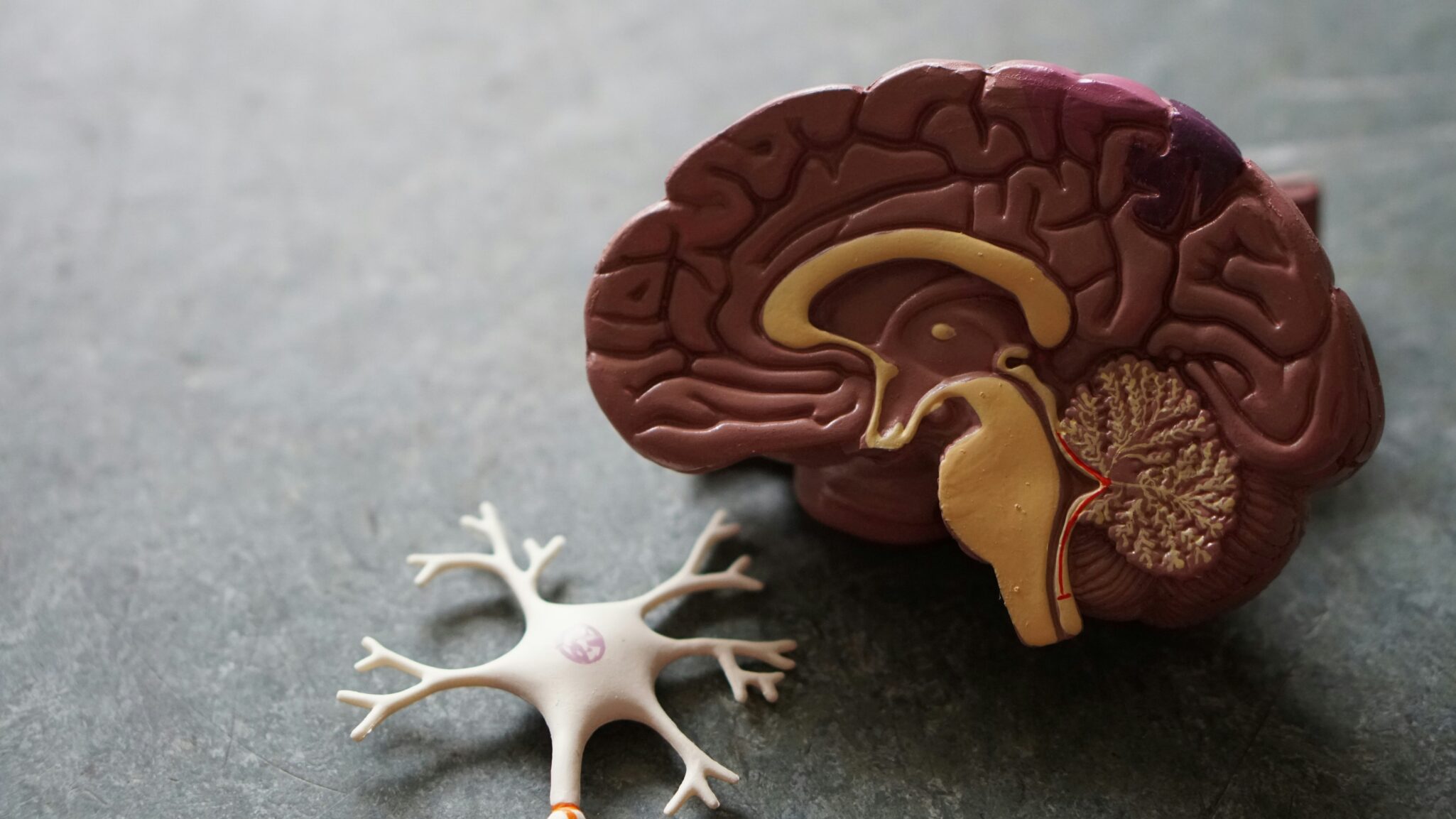Signs & Symptoms of Dementia

Everyone has occasional moments of forgetfulness. You may notice that your senior loved one sometimes forgets where they left their keys or mixes up their pets’ names. They may even struggle to remember doctor’s appointments. These memory lapses could be a normal part of aging, but they could also be a sign of a more serious cognitive issue like dementia.
The National Institute of Aging defines dementia as “the loss of cognitive functioning — thinking, remembering, and reasoning — to such an extent that it interferes with a person’s daily life and activities.” This irreversible condition occurs when neurons stop functioning correctly due to changes in the brain.
Early detection and diagnosis can help people living with dementia get support and manage symptoms. But what are the signs of dementia? Read on to learn about common symptoms and when to seek medical help for your loved one.
Common Signs and Symptoms of Dementia
According to a 2022 study, one in three Americans aged 65 years and older has dementia or mild cognitive impairment. Watch for these common signs and symptoms of dementia in your loved one.
Memory loss and forgetfulness
Memory loss and forgetfulness are the hallmark symptoms of dementia. These signs can impact many aspects of an affected person’s life.
You may observe your loved one forgetting how to complete everyday tasks. They may need help remembering recipes or using appliances. Some people with dementia also get lost and can’t remember how to retrace their steps, even in familiar locations. They might get confused walking the dog around the neighborhood or not know how to find their way back from the grocery store.
These memory lapses can also affect their interactions with other people. It’s normal to forget a distant acquaintance’s name, but people with dementia may not remember the names of their closest loved ones. You may also notice that they repeat questions and stories frequently during conversations.
Difficulty with communication and language
Dementia can also erode communication and language skills. People living with this condition often struggle to process spoken words. Your loved one could get confused during conversations or find it challenging to follow directions. They may also have trouble focusing when you talk to them, especially in busy environments.
Additionally, people with dementia can struggle to express themselves verbally and in writing. Their vocabulary typically shrinks as the disease progresses. They may also use incorrect words or phrases, causing their speech to sound like a word salad.
Trouble with problem-solving and decision-making
The cognitive changes caused by dementia can impair problem-solving and decision-making.
People with dementia frequently have trouble reasoning, even when faced with simple dilemmas. Say your loved one’s Internet stops working. A person with normal cognitive functioning would likely reset the router or call the Internet company for help. However, an individual with dementia may struggle to understand and troubleshoot the problem.
This condition also diminishes decision-making skills. For example, your loved one may be unable to decide what to cook for dinner and eat nothing. People with more severe dementia could also lose the ability to make informed medical and financial decisions.
Changes in mood and behavior
Dementia can significantly alter an individual’s mood, behavior, and personality. These changes typically occur due to the loss of neurons in different areas of the brain associated with cognition and emotion. For instance, people who lose neurons in the frontal lobe have less impulse control.
You may also notice these behavioral and mood changes:
- Aggressive or disinhibited behavior
- Anger and frustration
- Compulsive behaviors
- Depression
- Inability to sleep
- Loss of motivation
- Paranoia
- Passivity
Loss of interest in daily activities
Apathy affects 50% to 70% of people with dementia. This symptom causes individuals to lose interest in everyday activities. Your loved one might stop cleaning their home or socializing with their friends. They may also give up on hobbies that they once enjoyed.
This loss of motivation can negatively impact their emotional and mental well-being. People living with dementia often have diminished confidence and self-worth. They may also feel like they’ve lost their sense of self as they stop participating in daily activities.
Challenges with spatial orientation and navigation
Changes in the brain caused by dementia can lead to spatial disorientation. Individuals who experience this symptom lose the ability to understand their whereabouts. They may get lost in familiar locations like their local grocery store or library. People with spatial disorientation also can’t easily navigate from one location to another.
Early Symptoms of Dementia
Dementia is a progressive disease that leads to a gradual decline in cognition. Most people can spot the signs of advanced dementia, such as trouble communicating and severe memory lapses. However, this condition often starts subtly. Here are a few early symptoms of dementia.
Mild cognitive impairment
People with mild cognitive impairment experience a slight decline in memory and thinking. They often struggle to recall recently learned information. You may need to repeatedly remind your loved one about a new family member’s name or show them how to use a new phone.
At this stage, people with dementia may use memory aids to handle daily tasks. You might notice your loved one leaving sticky notes around the house with reminders or recording important information on their phone. These strategies can help them maintain independence as their cognition functions change.
Difficulty with multitasking
Declining cognitive function often leads to challenges with multitasking. Many people with dementia struggle to juggle multiple activities or switch between them efficiently. For example, your loved one might burn their dinner if they try to talk on the phone while cooking. They could also have difficulties following GPS directions while driving.
This symptom can have a significant impact on daily functioning. Your loved one might struggle to complete tasks in a timely manner and need help with responsibilities they once handled easily. They may also find it difficult to concentrate on simple tasks.
Trouble with remembering appointments or events
Everyone occasionally misses a doctor’s appointment or forgets to wish a friend happy birthday. However, people living with dementia may repeatedly forget important appointments and events. For instance, your loved one could miss their weekly phone call with their grandchild or forget they scheduled a dental cleaning. These memory lapses can disrupt their schedule and cause them to miss needed healthcare services.
Misplacing items or forgetting where they are
It’s normal to misplace your car keys or purse occasionally. People with normal cognitive functioning can typically retrace their steps when this happens or at least make educated guesses about where they’ve left their items. However, people living with dementia often struggle to keep track of their belongings. They may be unable to recall where they left items and not know where to start looking.
They may also set down objects in unusual locations. You might find their car keys in the freezer or an overdue bill buried in their laundry basket. This behavior can frustrate and confuse caregivers and individuals with dementia alike.
Struggling with finding the right words
Dementia can impair linguistic abilities. Your loved one may struggle to remember basic words and replace them with incorrect ones. They could also compensate by using vague or descriptive language instead of precise phrasing. For instance, they might refer to their phone as a “talking box” or call their nephew “the boy” instead of his name. This symptom can make it difficult to have fluid conversations with people living with dementia.
Importance of Seeking Medical Help
Researchers haven’t developed a cure for dementia yet, but that doesn’t mean you shouldn’t seek help for your loved one. Early detection and diagnosis have many benefits, including:
- Precise diagnosis. Many diseases fall under the umbrella of dementia, including Alzheimer’s disease, Lewy body dementia, and vascular dementia. A healthcare provider can diagnose the type of dementia and tailor your loved one’s treatment accordingly.
- Access to medication: Certain prescription medications can help treat the symptoms of early dementia. For example, lecanemab removes beta-amyloid from the brain, slowing cognitive decline. People diagnosed early may have access to a wider range of treatments than those at more advanced stages.
- Ability to make lifestyle changes: Certain lifestyle changes may help your loved one maintain cognitive function and improve overall well-being. Their doctor may suggest that they exercise, stop smoking, and engage in social activities.
- Increased emotional support: People with dementia and their caregivers often experience significant emotional challenges. Getting an early diagnosis can help everyone get access to necessary support services. These resources may include support groups, counseling services, family education programs, and respite care.
Prepare for the Future
Caregivers often ask, “What are the symptoms of dementia?” The signs can vary but may include cognitive, emotional, and behavioral changes. Familiarizing yourself with these symptoms can help you detect dementia early and help your loved one get the care they need to enjoy a peaceful and satisfying life.
A memory care community is one of the most valuable resources for people with dementia. SRG Senior Living’s Enliven Memory Care offers compassionate care tailored to each resident’s unique needs. Your loved one will enjoy social events, physical activities, music therapy, and other activities designed to support cognitive well-being. Contact us to learn how we can help your loved one stay safe, active, and fulfilled.




